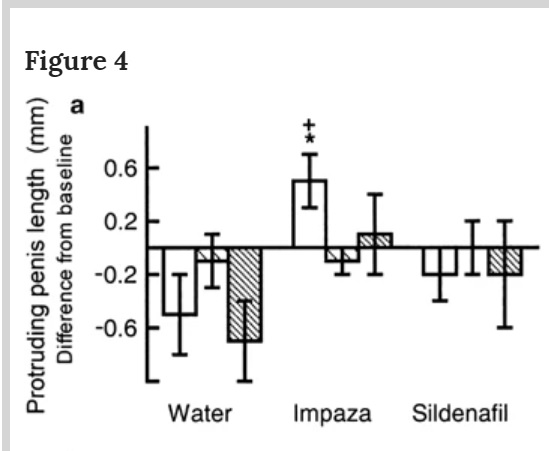Jul
07
2020

Stars do not just disappear – except when they do.
Using the Very Large Telescope (part of the European Southern Observatory) astronomers have been tracking a massive unstable star. The star is located in the Kinman Dwarf galaxy, which is a distant, small, and metal poor galaxy (PHL 293B – at a distance of 23.1 Mpc ). This is too far away for current telescopes to resolve individual stars, but astronomers can detect the presence of specific stars by looking at the spectral absorption lines. Between 2001 and 2011 they were monitoring a luminous blue variable star (LBV). These are massive blue stars, and this one was believed to be at the end of its life. They were able to infer temperature and other features that suggests the star was in an eruptive phase.
Then, in 2019, astronomers wanted to check back up on this star so they looked for the spectral lines in the same location of Kinman and – they were gone. The star was apparently gone. What could have happened?
The astronomers have put forth two hypotheses. The first is more mundane – if the star was in an eruptive phase, perhaps it shed a lot of its mass, rapidly becoming a much smaller and dimmer star (sometime between 2011 and 2019). This alone would not be enough to explain the disappearance, and so over this same time the star might also have been obscured by dust. This combination of factors could explain the disappearance.
Continue Reading »
Jul
06
2020
 The current world population is 7.8 billion people. We are expected to reach 10 billion by 2057, which, let’s face it, is right around the corner. That is a lot of people to feed. We don’t produce enough food now to feed that many people, and we are already using almost all the available arable land (this is a complex topic, but I go over it in detail here). What are the possible solutions?
The current world population is 7.8 billion people. We are expected to reach 10 billion by 2057, which, let’s face it, is right around the corner. That is a lot of people to feed. We don’t produce enough food now to feed that many people, and we are already using almost all the available arable land (this is a complex topic, but I go over it in detail here). What are the possible solutions?
Some argue for population control, and there is a reasonable argument to be made for leveling off and stabilizing human populations, even allowing them to drift down a bit. I don’t want to go into detail on this issue here, just to quickly say I reject arguments for radical population control, or things like allowing mass starvation to occur. But I support efforts such as lifting people out of poverty and affording more rights to women, both measures being shown to reduce population increase.
Another offered solution is to reduce food waste, and this is a noble effort. However, there is no magic wand we can wave to make this happen. Food waste is built into the system, and a major cause is the limited shelf life of food. It spoils. But there is unnecessary waste in the system, and we can do a better job of making sure as many calories end up consumed (by people or animals) as possible, and the rest is recycled as fertilizer. But this isn’t going to solve the problem.
This leaves us with food production – we need to produce more calories of food in order to meet growing demand. This is going to require a global effort, and the introduction of new technology. I have argued for the necessity of GMOs in order to meet growing demand for food while minimizing land use. But we have to produce not only more food, we need to produce food smarter – making sure that our resources (especially land) are being used optimally.
Continue Reading »
Jul
02
2020
 A study by Russian researcher purports to find that a treatment, Impaza, increases penis length during copulation in rats, while the water placebo group and sildenafil (Viagra) did not. The authors conclude: “This effect, together with an absence of motivational actions, suggests that Impaza may be the most valuable treatment for erectile dysfunction.” The study was originally published in the International Journal of Impotence Research, but was later retracted by the editors. The primary reason for the retraction is that the editors discovered that Impaza is a homeopathic product, something that was apparently missed on initial peer review.
A study by Russian researcher purports to find that a treatment, Impaza, increases penis length during copulation in rats, while the water placebo group and sildenafil (Viagra) did not. The authors conclude: “This effect, together with an absence of motivational actions, suggests that Impaza may be the most valuable treatment for erectile dysfunction.” The study was originally published in the International Journal of Impotence Research, but was later retracted by the editors. The primary reason for the retraction is that the editors discovered that Impaza is a homeopathic product, something that was apparently missed on initial peer review.
This is definitely an editorial fail, but at least it was quickly corrected. To put the failure in context, however, Impaza was not presented as homeopathic, but rather as a “release-active antibody-based” drug. This is code in Russia, apparently, to disguise the homeopathic nature of certain products. It is not uncommon in pseudoscience for proponents to come up with scientific sounding euphemisms for their nonsense in order to hide from the negative association with charlatans and quacks.
Editors and reviewers, however, need to dig deep enough to uncover such pseudoscience. At the very least there was a lack of curiosity on the part of the editors, and insufficient vigilance against the intrusion of pseudoscience.
Continue Reading »


 The current world population is 7.8 billion people. We are expected to reach
The current world population is 7.8 billion people. We are expected to reach  A study by Russian researcher purports to find that a treatment, Impaza, increases penis length during copulation in rats, while the water placebo group and sildenafil (Viagra) did not. The authors conclude: “This effect, together with an absence of motivational actions, suggests that Impaza may be the most valuable treatment for erectile dysfunction.” The study was originally published in the
A study by Russian researcher purports to find that a treatment, Impaza, increases penis length during copulation in rats, while the water placebo group and sildenafil (Viagra) did not. The authors conclude: “This effect, together with an absence of motivational actions, suggests that Impaza may be the most valuable treatment for erectile dysfunction.” The study was originally published in the 




